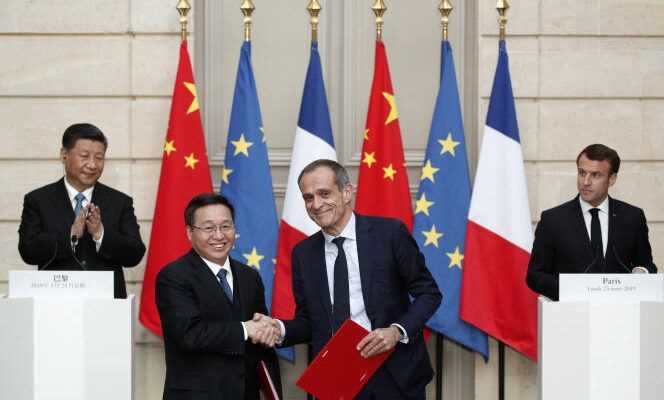In the era of the new helmsman Xi Jinping, are foreign companies still welcome in China? After joining the World Trade Organization (WTO) on December 11, 2001, many business leaders, like political leaders, believed that increased trade would lead to a relaxation of the regime. It did not, which did not prevent them from increasing their investments in what has become the largest market in the world. And, in most cases, to hang on to it through thick and thin.
With the exception of the digital giants. The treatment of these large data collectors and content distributors, severely controlled by the State and the Communist Party, illustrates the decoupling of American and Chinese companies. Due to the new Chinese law on the protection of personal data (also hitting the local giants), Epic Game (creator of the video game “Fortnite”) and Yahoo announced their departure in November, following by a month the LinkedIn network of Microsoft. They joined Facebook, Instagram, YouTube or Google, which had packed up ten years ago. Apple and Tesla had to breach the protection of their data, hosted on Chinese soil, to stay in the Middle Kingdom, which represents 20% and 30% of their activity, respectively.
Great influencers
Asset managers also have many reasons to question the sustainability of their presence. The tightening of the policy on e-commerce (Alibaba…), VTC (Didi…), video games (Epic Game…) or private education, combined with the virtual bankruptcy of the local real estate giant Evergrande, have erased 1.5 trillion valuations of Chinese groups in less than a year.
The risk is also political, denounced George Soros, who has divested from China. In a column published in early September by the Wall Street Journal, the billionaire was pointing the“Tragic error” committed by asset manager BlackRock, which is strengthening its positions in the country. To “Probable losses” for his clients, he said, there is the added risk of seeing this capital “Attack on the national security of the United States and other democracies” by financing activities hostile to the West.
While finance and Big Tech are under tight surveillance, other sectors are not immune to rigorous control. But their maintenance or their departure can be explained more by their strategic choices or their adaptability to the local market than by the regime’s decisions alone. “There is no one answer, underlines André Chieng, vice-president of the France-China committee of Medef and recognized expert in this country. Several factors are involved, such as the type of business or the way you work. The market is very changeable, companies never have definitive positions. ” We have seen this in sectors such as the food industry, the automobile industry and fashion, where foreign multinationals are very present.
You have 61.08% of this article to read. The rest is for subscribers only.
